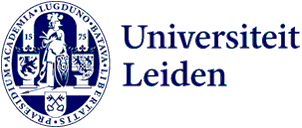Update Faculty board
The faculty is working full steam ahead on educational innovations, new courses and high-impact, interdisciplinary research. A good time, therefore, to update the faculty community on current developments within our faculty.
Financial outlook 2025
Much is unclear about the cuts the Dutch government is proposing to implement. The Executive Board periodically informs our university community about these plans. Our faculty is on track to face the financial challenges ahead. That said, the faculty will have to continue to use available resources prudently in the coming period.
Innovations in education
The next academic year is going to be very special. It will see the introduction of the extensively prepared revisions to the existing curricula and the start of new degree programmes. These milestones demonstrate our strength, commitment, perseverance and passion for our profession and our students. Our great appreciation and thanks go to all those who are making this possible with their unwavering dedication to future-proofing our faculty.
Next year, for example, will see the launch of the new (Kernvisie) curriculum for our bachelor’s law degrees. Some important measures have already been implemented, including the compulsory matching module which took effect in January 2025.
Within the master’s programme Rechtsgeleerdheid (Law), teaching staff are working on various innovations. For instance, using the Change Laboratories where teaching staff work together to revamp their course set-up. The revision of the bachelor’s degree in Criminologie (Criminology) is also in full swing. This coming academic year, the revamped bachelor's degree will start with courses more tailored to the needs of criminology students.
New degree programmes
At the recent Bachelor’s Open Day on 1 March, prospective students could learn all about our bachelor’s programmes, including the new degree Economie en Samenleving (Economics and Society). The newest master's programme Economie van de Publieke Sector (Public Sector Economics) will also start next academic year. This programme focuses on the economics of Dutch public policy and public service.
The bachelor’s programme Cybersecurity & Cybercrime is a new multidisciplinary programme in The Hague which is organised by three faculties (Governance and Global Affairs, Leiden Law School and Science). From our faculty, the departments of Criminology, Criminal Law and eLaw will contribute to this new programme. Students will learn more about the technology behind cyberattacks, offenders and victims, crisis management, criminal liability, and digital investigation methods.
Working Group Elective Education
The faculty’s Working Group Elective Education is working hard to develop our elective courses, called minors, and the first outcomes are expected very soon. From academic year 2027-2028 onwards, students will have room in the fifth semester of their programme to take minors. To enable this, we will scale down our current elective courses. At the same time, we are gradually working on an attractive and coherent range of minors that we can offer both students from our own faculty and beyond. To this end, the Working Group Elective Education is developing a governance model through which minors will be reviewed against criteria set in advance. The most important thing is that the minors are attractive to students, helping them to broaden and deepen their knowledge.
Discontinuation of part-time education
It has been decided that from academic year 2026-2027 we will no longer offer a part-time option for our degree programmes. All those involved have now been informed and promotional activities have been stopped. Looking ahead to academic year 2026-2027, we will develop a policy for students who are unable to participate in full-time education due to personal circumstances.
Have your voice heard!
From 6 to 20 May, the Employee Experience Survey will be held (previously known as the personnel monitor). Sent out every two years to all employees, this survey offers you the chance to have your voice heard. Your response provides us with valuable feedback about your experience, satisfaction and well-being as an employee. So, we encourage you all to take part in this survey!
In April, you will also receive an invitation to participate in a survey on ‘Smarter digital collaboration’. This survey is part of a project aimed at improving work-life balance. So, again, it’s important that you share your thoughts with us.
The same applies to the upcoming elections for the Faculty Council. Perhaps you would like to join this participation body yourself and stand for election (you can do so until 9 April), or otherwise vote for the person who can represent you best (from 12 to 15 May). Having a strong participation body helps us to build an enjoyable, inspiring and socially safe work environment within the university and the faculty.
Everyone welcome
The Faculty Board organises walk-in sessions where everyone is welcome to join us for an informal moment of contact. If, having read this update, you have any questions or would like to arrange a meeting before the next walk-in session, please contact the Faculty Board by sending an email to the board secretary.
The Faculty Board,
Suzan Stoter, Jan Crijns, Gertjan Boshuizen and Roel Kwast
